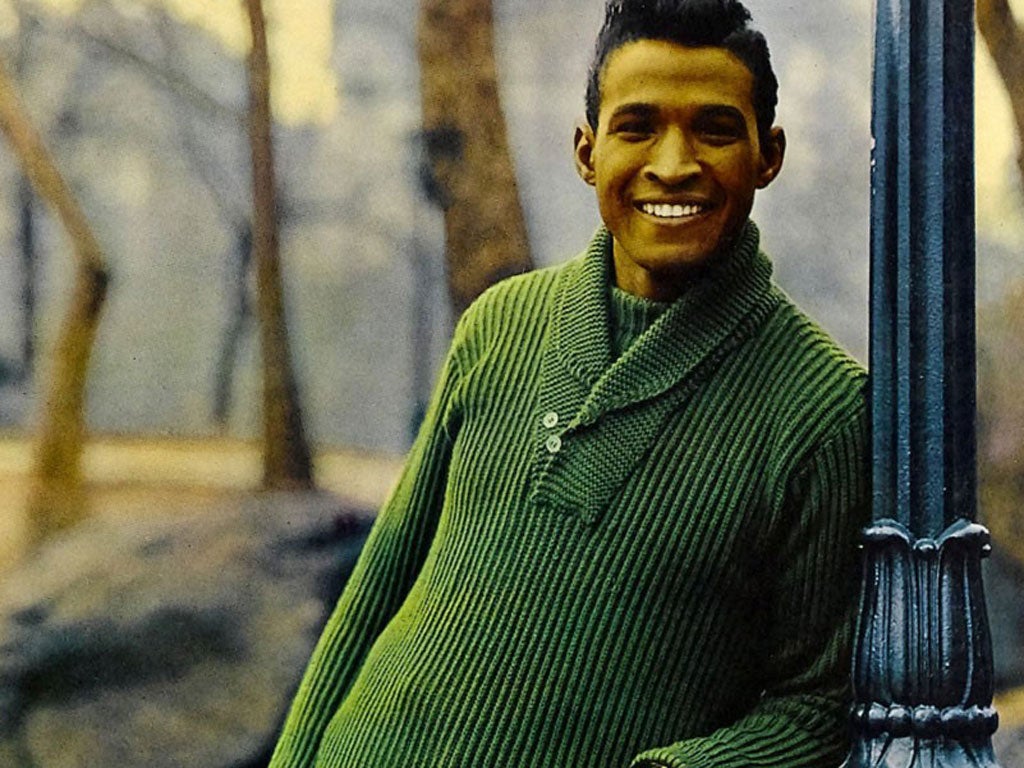Jimmy Jones: The first black singer to have a UK million-selling hit

Your support helps us to tell the story
From reproductive rights to climate change to Big Tech, The Independent is on the ground when the story is developing. Whether it's investigating the financials of Elon Musk's pro-Trump PAC or producing our latest documentary, 'The A Word', which shines a light on the American women fighting for reproductive rights, we know how important it is to parse out the facts from the messaging.
At such a critical moment in US history, we need reporters on the ground. Your donation allows us to keep sending journalists to speak to both sides of the story.
The Independent is trusted by Americans across the entire political spectrum. And unlike many other quality news outlets, we choose not to lock Americans out of our reporting and analysis with paywalls. We believe quality journalism should be available to everyone, paid for by those who can afford it.
Your support makes all the difference.The most unlikely feature of rock'n'roll music was the prominence of falsetto singing whereby male singers mimicked female voices. It is prominent throughout the hit recordings of Jackie Wilson, Sam Cooke, Del Shannon, Roy Orbison and Frankie Valli, and one of the first artists to exploit this sound was Jimmy Jones, who had international success with "Handy Man" and "Good Timin'" (both 1960). With "Good Timin'", a UK No 1, Jones became the first black artist to sell a million copies of a single in the UK.
Jimmy Jones was born in Birmingham, Alabama in 1930 and he war raised with a love for black vaudeville acts. He would attach bottle tops to his sneakers so that he could tap dance, and he loved hearing gospel singers with their voices. His first single, "Woman, Woman, Woman", was made with the doo-wop group the Sparks Of Rhythm in 1955 and he also recorded with the Savoys, the Pretenders and the Jones Boys. Although he did not have chart success, he was known around the Brill Building in New York and he would make demos for songwriters.
When Jones awoke with the idea for "Handy Man", his wife told him to go back to sleep but he knew he had something. He showed it to Otis Blackwell, who had written hits for Elvis Presley and Jerry Lee Lewis. Blackwell knocked the song into shape and the humorous lyric was about a modern-day Lothario with no skills at all, except for repairing broken hearts. This kept him busy 24 hours a day.
When the flautist did not arrive for the demo session, Otis Blackwell whistled in his place. The result was so successful that it was issued as a single. A disc jockey in Pittsburgh started playing it and it became a huge success, climbing to No 2 in the US and No 3 in the UK.
"Good Timin'" followed the same path, but the song was written by Fred Tobias (part of a remarkable songwriting dynasty – eight members of the family wrote hit songs) and Clint Ballard Jr (the manager of the Kalin Twins and the writer of "You're No Good"). The record made No 3 in the US and topped the charts here, enabling Jones to tour the UK with the up-and-coming British singer, Mark Wynter.
"I was offered the tour by Arthur Howes and I was thrilled," Wynter recalled. "'Handy Man' and 'Good Timin'' were really good records and Jimmy was a great stage performer. He could do a back-flip and land on the floor with the splits. He was a really nice guy, too, but he faded off."
Jones, whose act was modelled on Jackie Wilson's, was the first person to introduce British audiences to the twist. However, he could not achieve another major single. He had limited success with Don Covay's "I Just Go For You" and Van McCoy's "Ready For Love". His first album, Good Timin', included the original version of "Wondrous Place", which became an iconic song with a different arrangement for Billy Fury. Some of his records were dire, notably "Ee-I, Ee-I, Oh!", which was not about Old MacDonald, but his daughter, Sue.
Jones was disillusioned as most of his earnings remained with his manager, Norm Riley. Riley checked himself into an asylum and declared himself insane to avoid claims from his clients.
Although Jones became a forgotten figure, "Handy Man" has retained its appeal as a much covered song. In 1964 Del Shannon made a successful revival, very much in Jones' style, while James Taylor fancied a melancholy approach in 1977. It could also be argued that Neil Sedaka's "Calendar Girl" (1961) owed something to "Handy Man", and Jones did consider court action against Culture Club for "Karma Chameleon" (1983). "I might have heard it," their lead singer Boy George admitted, "but it was certainly not something I sat down and copied. We gave him 10 pence and an apple."
Jones' records were popular during the Northern Soul era and, throughout the years, Jones was foolishly encouraged to ape his successes. They ranged from "Mr Fix-It" (1963) to the disco remake "Handyman's Back In Town" (1981). In 1990 he released a new album, Grandma's Rock'n'Roll Party, and came to the UK the following year for a rock'n'roll show at Wembley.
James A Jones, singer: born Birmingham, Alabama 2 June 1930; married (one son, two daughters); died Aberdeen, North Carolina 2 August 2012.
Join our commenting forum
Join thought-provoking conversations, follow other Independent readers and see their replies
Comments